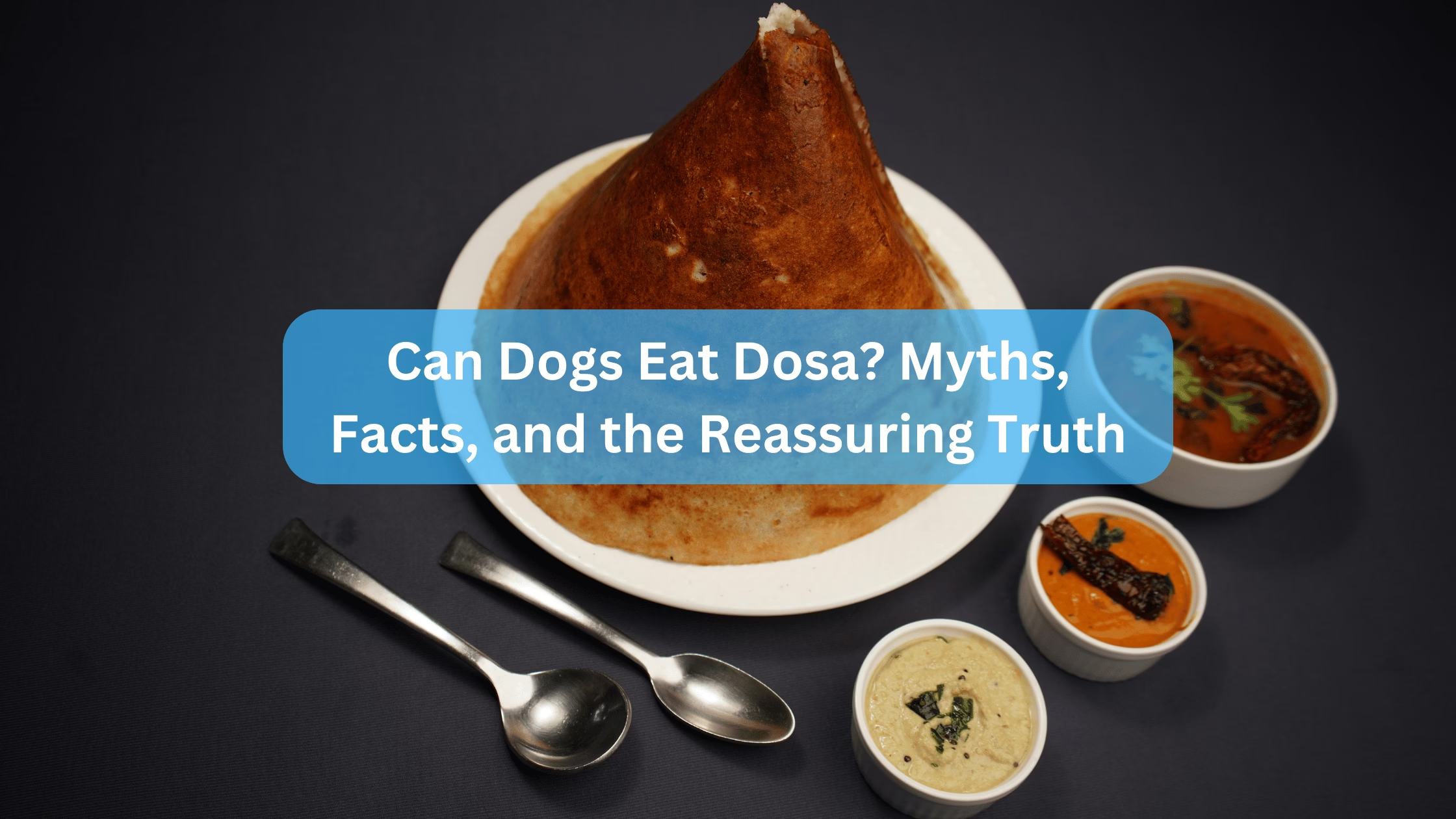Can Dogs Eat Dosa? Dosa is a beloved South Indian dish enjoyed by many for its crispy texture and savory flavors.
As a dog owner, you might wonder if it’s okay to share this delicious treat with your furry friend.
In this article, we will answer common questions, bust myths, and provide clear insights into whether dogs can eat dosa.
What is Dosa?
Dosa is a thin, crispy crepe made primarily from fermented rice and black lentils (urad dal).
It is often served with various chutneys and sambhar, a flavorful lentil-based stew. Dosa comes in many varieties, including:
- Plain Dosa: Just the crepe, without any fillings.
- Masala Dosa: Filled with spiced mashed potatoes.
- Onion Dosa: Dosa with onions cooked into the batter.
- Paper Dosa: A thinner, crispier version.
Can Dogs Eat Dosa?
Yes, but with caution. Dogs can technically eat dosa, but it’s not recommended as a regular part of their diet. Here’s why:
Nutritional Considerations
- High in Carbohydrates: Dosa is primarily made from rice, which is high in carbohydrates. While dogs need some carbohydrates in their diet, too many can lead to obesity and other health issues.
- Protein Content: The lentils in dosa provide some protein, but not enough to replace a balanced dog food diet. Dogs require a specific balance of nutrients that dosa alone cannot provide.
Common Myths About Dogs and Dosa
1. Myth: Dosa is Healthy for Dogs Because It’s Made from Natural Ingredients.
- Fact: While dosa is made from rice and lentils, the preparation often includes spices and seasonings that can be harmful to dogs. Ingredients like onions and garlic, commonly found in dosa, are toxic to dogs.
2. Myth: Dogs Can Eat Any Human Food.
- Fact: Not all human foods are safe for dogs. Many foods we enjoy can cause digestive issues or toxicity in dogs. Always research before sharing human food with your pet.
3. Myth: A Small Amount of Dosa is Safe for Dogs.
- Fact: While a small piece of plain dosa may not cause immediate harm, it’s essential to consider the overall diet. Regularly feeding dogs human food, including dosa, can lead to unhealthy eating habits.
Potential Risks of Feeding Dosa to Dogs
- Spices and Seasonings: Many dosa recipes include spices like chili powder and cumin. While some spices are safe in small amounts, others can cause gastrointestinal upset.
- Onions and Garlic: These ingredients are particularly harmful. They can cause oxidative damage to red blood cells, leading to anemia in dogs.
- Digestive Issues: Dogs have sensitive digestive systems. Foods high in fat or unfamiliar ingredients can lead to vomiting, diarrhea, or abdominal pain.
Signs Your Dog May Have an Adverse Reaction
If you decide to give your dog a small piece of dosa, watch for signs of an adverse reaction, including:
- Vomiting or diarrhea
- Lethargy
- Loss of appetite
- Abdominal pain or bloating
If you notice any of these symptoms, consult your veterinarian immediately.
Safer Alternatives to Dosa for Dogs
If you’re looking for a treat to share with your dog, consider these dog-friendly options:
- Plain Cooked Chicken: A great source of protein that most dogs love.
- Carrots or Green Beans: Crunchy vegetables that are low in calories and high in fiber.
- Peanut Butter: A tasty treat (ensure it’s xylitol-free) that many dogs enjoy.
Also Read: Can Dogs Eat Dragon Fruit? A Comprehensive Guide
Also Read: Can Dogs Eat Escarole? A Comprehensive Guide
Conclusion
While dogs can eat dosa in small amounts, it is not advisable to make it a regular part of their diet due to its high carbohydrate content and potential harmful ingredients.
Always prioritize your dog’s health by choosing safe, nutritious treats.
If you have any doubts or questions about your dog’s diet, consult with your veterinarian for personalized advice.
By being informed and cautious, you can ensure your furry friend remains happy and healthy.
Sources:







